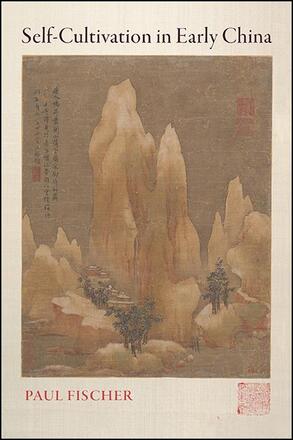
Self-Cultivation in Early China
Alternative formats available from:
An introduction to ancient Chinese ideas on how to live a good life.
Description
Self-Cultivation in Early China is an introduction to multiple aspects of the foundational practice of self-cultivation in early China (c.1000 to 100 BCE). Drawing on the Chinese classics and the dozens of scholars' texts (both received and excavated) that together form the basis of intellectual history for China and all of East Asia, the book's analysis relies on the topics and categories that were central to the thought of these authors, including such well-known thinkers as Confucius and Laozi. This book describes a salient point of view from which we may consider the broader landscape of Chinese intellectual history and presents an important paradigm of the scholarly Chinese worldview that is ideal for comparison with paradigms in other communities, ancient or modern, across the globe.
Paul Fischer is Associate Professor of Asian Religions and Cultures at Western Kentucky University. He is the translator and editor of Shizi: China's First Syncretist.
Reviews
"In addition to conveying the paradigm of the scholarly Chinese worldview, Fischer reminds us of a global-mindedness that concerns the comparison between different communities worldwide, and the necessary reinterpretation of the contemporary applicability of ancient authoritative texts. In sum, this sophisticated and user-friendly work is highly recommended to those concerned with early Chinese religions and philosophy as well as comparative studies." — Religious Studies Review
"Although there is a long tradition of self-cultivation in China and East Asia, this is the first book-length work to discuss this important issue in Chinese cultural history, thus offering a unique contribution to our understanding of early China. Fischer combines sophisticated scholarly research with an accessible introduction to a multilayered audience, including scholars in the field, undergraduate students, and general readers." — Jianjun He, translator of Spring and Autumn Annals of Wu and Yue: An Annotated Translation of Wu Yue Chunqiu